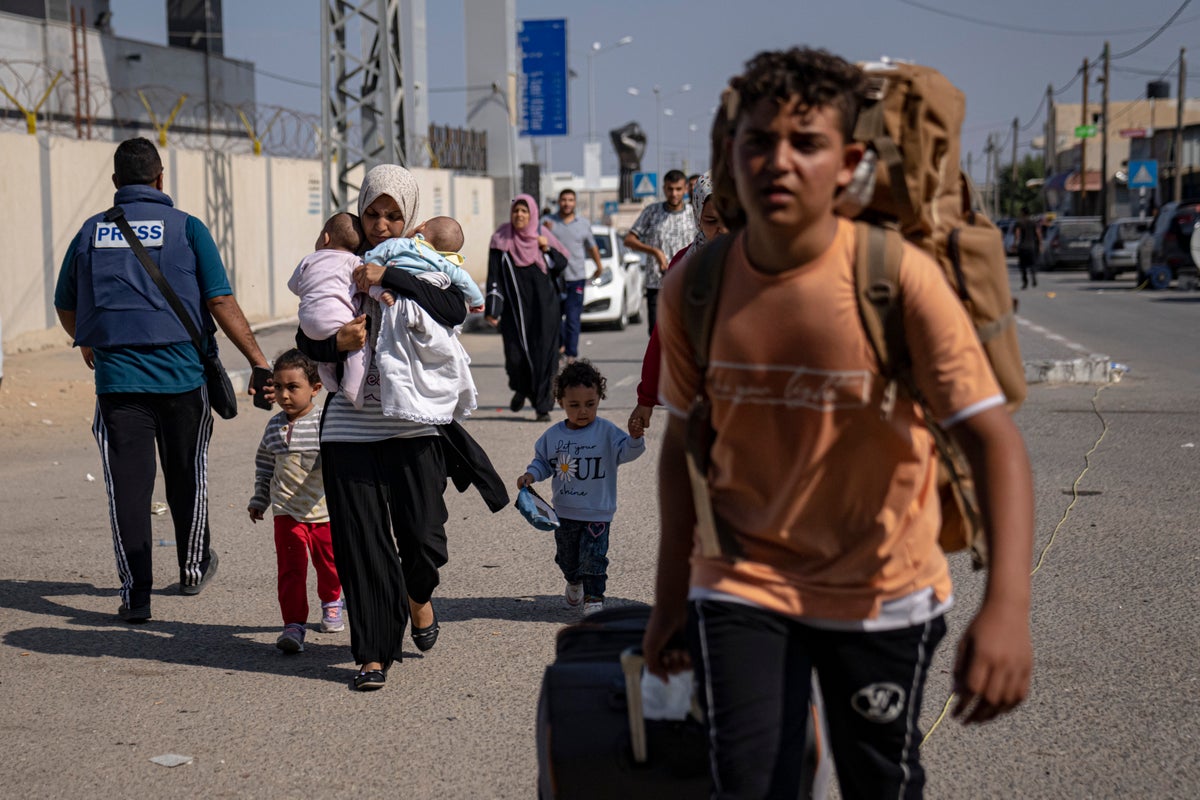
Israel’s ground troops were advancing toward Gaza City as diplomatic efforts intensified for at least a brief pause in the fighting in Gaza's deadliest war.
President Joe Biden suggested a humanitarian “pause” and U.S. Secretary of State Antony Blinken is expected back in the region on Friday. Arab countries, including those allied with the U.S. and at peace with Israel, have expressed mounting unease with the war.
The opening of the Rafah border crossing, allowing hundreds of foreign passport holders and wounded Palestinians to leave Gaza on Wednesday, followed weeks of talks among Egypt, Israel, the U.S. and Qatar, which mediates with Hamas.
The Palestinian death toll in the Israel-Hamas war has reached 8,805, according to the Hamas-run Health Ministry in Gaza. In the occupied West Bank, 130 Palestinians have been killed in violence and Israeli raids.
More than 1,400 people in Israel have been killed, most of them in the Oct. 7 Hamas rampage that started the fighting, and around 240 hostages were taken from Israel into Gaza by the militant group.
Currently:
1. More than 3,600 Palestinian children killed in just 3 weeks of war
2. Blinkenwill enter diplomatic maelstrom over Gaza war on new Mideast trip
3. Opposition mounts in Arab countries that normalized relations with Israel
4. Israel criticizes South American countries after they cut diplomatic ties
5. Find more of AP’s coverage at https://apnews.com/hub/israel-hamas-war.
Here’s what is happening in the latest Israel-Hamas war:
POWER GENERATOR OUT AT KEY HOSPITAL
RAFAH, Gaza Strip — The power generator of the northern Gaza Strip’s key hospital went out of service early Thursday, Gaza’s Health Ministry said.
The Indonesian Hospital in Beit Lahia is near the densely populated Jabaliya refugee camp, which has been the target of heavy Israeli airstrikes this week.
Health ministry spokesperson Ashraf Al-Qudra said in a televised statement that the hospital is running on a smaller backup generator but had to turn off lights in most rooms, shut down oxygen generators and resort to oxygen cylinders, and turn off mortuary refrigerators.
“These exceptional measures will allow the Indonesian Hospital to work for a matter of days,” Al-Qudra says. “However, if we cannot secure electricity or fuel then we will face a disaster.”
While some aid trucks have entered the blockaded Gaza Strip since the war began last month, Israel has not allowed trucks to bring fuel.
RETIRING OFFICIAL CRITICIZES UN FOR FAILING TO STOP ‘GENOCIDE’ IN GAZA
UNITED NATIONS – A retiring United Nations human rights agency official strongly criticized the U.N. for failing to stop what he called “a genocide unfolding before our eyes” in Gaza.
Craig Mokhiber, a U.S. human rights lawyer who joined the U.N. in 1992, claimed the “slaughter of the Palestinian people” is rooted in decades of persecution and purging by Israel “based entirely upon their status as Arabs.”
Mokhiber left his job heading the New York office of the Office of the U.N. High Commissioner for Human Rights on Tuesday. His four-page letter to U.N. human rights chief Volker Türk makes no mention of Hamas' surprise attack on Israel on Oct. 7. Mokhiber had informed the U.N. in March of his planned retirement, U.N. spokesperson Stephane Dujarric said.
In the letter, Mokhiber accused the U.S., the U.K. and much of Europe of being complicit in the assault on Gaza by Israeli forces.
Mokhiber, who said he has investigated Palestinian human rights since the 1990s and lived in Gaza, also wrote that a two-state solution is an impossibility. He called for the dismantling of Israel and establishment of “a single, democratic, secular state in all of historic Palestine, with equal rights for Christians, Muslims, and Jews.”







